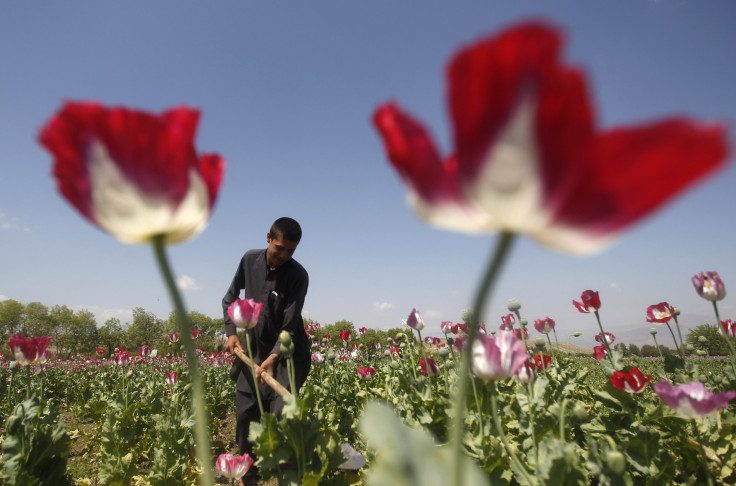Afghanistan Taliban War: Opium Fuels Conflict As Farmers Pray For A Prosperous Harvest

Despite billions of dollars in U.S. investment to eradicate opium cultivation, Afghanistan produces the bulk of the world’s opiate supply, and much of that money is helping fund an intensifying Taliban insurgency. Although the opium harvest dipped 19 percent last year due to a fungus, farmers are optimistic they'll see a prosperous harvest next month, IRIN News reported Friday.
“Today, a lot of farmers in Nad-e-Ali are growing poppies again, as well as in every other district in Helmand,” Mahmood Noorzai, a Helmand police commander who oversees narcotics, told the news website. “There is no eradication going on.”
The Central Asian country produces some 90 percent of the world’s opiates, according to the United Nations Office on Drugs and Crime. The U.S. invested upwards of $7 billion in drug eradication after ousting the Taliban from power in 2001, but in subsequent years, cultivation of the crop has soared. The crop mostly disappeared toward the end of Taliban rule as the group threatened prison sentences for those who defied a ban, the New York Times reported at the time. In recent months, the insurgent group has experienced a resurgence and has made inroads in Helmand province, where nearly half of the country’s opium is grown.
Matin Khan, a tribal elder in the province, told IRIN how the Taliban profits from each step in the cultivation process. In parts of the country, the insurgent group provides seeds for farmers who then grow the opium on their behalf, the New York Times reported last month.
“Taliban demand opium taxes from farmers, levy tolls at checkpoints where smugglers pass, and then escort them for money through the lawless border region between Afghanistan, Pakistan and Iran," Khan said.
As fighting has intensified between the Taliban and the Kabul government in recent months, officials have diverted attention away from clamping down on the Taliban’s opiate profits and instead focused on the military conflict. But it’s not just insurgents cashing in on the crop. Money from the industry also helps line the pockets of corrupt government officials, who frequently push farmers for bribes. Authorities are more involved in the drug trade today than ever.
Afghanistan is ranked among the most corrupt nations in the world. Widespread corruption has damaged trust in the U.S.-backed government.
© Copyright IBTimes 2025. All rights reserved.






















